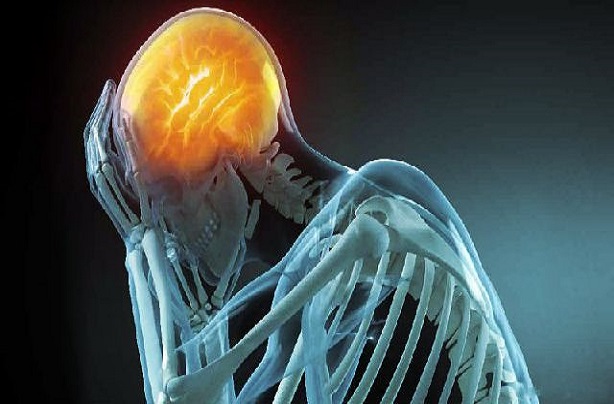4 Warning Signs of Excessive Stress You Should Never Ignore
Humans experience stress, or perceive things as threatening, when they do not believe that their resources for coping with obstacles (stimuli, people, situations, etc.) are enough for what the circumstances demand. When people think the demands being placed on them exceed their ability to cope, they then perceive stress.

There is likely a connection between stress and illness. Theories of the stress–illness link suggest that both acute and chronic stress can cause illness, and several studies found such a link. According to these theories, both kinds of stress can lead to changes in behavior and in physiology.
Behavioral changes can be smoking and eating habits and physical activity. But how do you know you are stressing?
1. Stress induced Headaches

Headaches are more likely to occur when you’re stressed. Stress is the most common cause of tension-type headaches and can trigger other types of headaches or make them worse. Tension headaches are dull pain, tightness, or pressure around your forehead or the back of your head and neck. Some people say it feels like a clamp squeezing the skull. Often called stress headaches, they’re the most common type for adults.
When you get them less than 15 days per month, they’re called episodic tension headaches. If they happen more often, they’re called chronic.
2. Stress related Digestive issues

The impact of stress on the stomach goes far beyond indigestion, however. In recent years, doctors have uncovered a remarkably complex connection between the brain and the digestive system. The entire system is extremely sensitive to our moods. In fact, experts now see stress as a major player in a wide range of digestive problems, including irritable bowel syndrome, indigestion, and heartburn.
When the brain feels severely stressed, it unleashes a cascade of hormones that can put the whole digestive system in an uproar. The hormones have different and sometimes contradictory jobs. For example, the hormone CRH (short for corticotropin-releasing hormone) is one of the body’s main alarm bells. In stressful situations, the brain pumps out CRH to tell the adrenal gland to start making steroids and adrenaline, chemicals that can give you the strength and energy to run or fight your way out of trouble.
3. Stress keeps you awake the whole night, and not in a good way

For millions of men, erectile dysfunction is nothing more than a stress response that triggers a classic mind-body phenomenon. Sexual activity is under the control of the autonomic or involuntary nervous system; i.e. we have no conscious control over it. Whenever a man becomes aroused, nerve impulses cause blood vessels in the penis to dilate, allowing a steady flow of blood into the spongy tissue.
At the same time, a circular muscle called a sphincter constricts to prevent blood from flowing back. During stress, blood vessels don’t dilate fully and the sphincter fails to constrict, both contributing to erectile dysfunction. Negative events create a spontaneous stress response that intensifies the more ingrained it becomes.
4. Cold and Coughs

These anxiety cough symptoms can come and go rarely, occur frequently, or persist indefinitely. For example, you may feel the tickle and/or urge to cough once in a while and not that often, feel it off and on, or feel it all the time. These anxiety cough symptoms may precede, accompany, or follow an escalation of other anxiety sensations and symptoms, or occur by itself. It can also precede, accompany, or following episode of nervousness, anxiety, fear, and elevated stress, or occur ‘out of the blue’ and for no apparent reason.
Taking care of this is important, for stress can get fatal if left without diagnosed.
